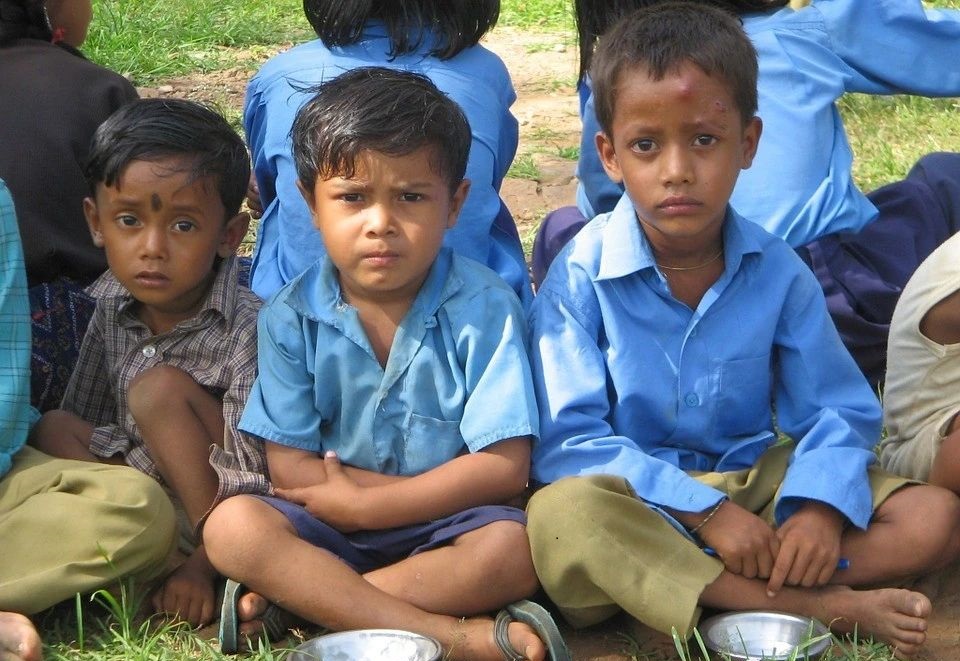(pixabay/image)
Author: Yuejun Han
Food is the most important thing for the people, and food is indispensable. Although 690 million people around the world still have to endure hunger, many people were still shocked when the 2020 Nobel Peace Prize was awarded to the United Nations World Food Program (WFP).
Total words1797About5minutes
What is the official reason for the award?
The Nobel Committee recognized WFP for its "efforts to fight hunger" and "for its contribution to improving conditions in conflict areas." Announcing the award, Nobel Committee Chairman Berit Reiss-Andersen said: "Now more than ever, international solidarity and multilateral cooperation are needed, and multilateral cooperation is absolutely necessary to address global challenges. .”
What does WFP do?
Simply put, WFP is the United Nations' professional agency responsible for food aid and is the world's largest humanitarian aid agency.
Founded in 1961 and headquartered in Rome, WFP has offices or activities in more than 80 countries around the world, with more than 11,000 employees. WFP's mission is to achieve zero hunger and eradicate malnutrition. In 2019, WFP provided assistance to nearly 100 million people in 88 countries.
Since its establishment, WFP has mainly provided emergency food aid. It mainly provides food and food assistance, as well as technical support and capacity building to conflict areas or disaster-stricken areas, to help recipient countries and beneficiary groups achieve basic food and clothing and improve nutrition.
What is WFP doing to improve aid effectiveness?
First, WFP improves the project model. In addition to emergency assistance, we carry out post-disaster reconstruction and development projects to help recipient countries and beneficiaries improve their food security levels. Carry out post-disaster reconstruction projects to build rural infrastructure with food-in-aid, provide food subsidies for women participating in agricultural technology training, provide nutritious meals for primary school students, and cooperate with institutions such as the International Fund for Agricultural Development (IFAD) to provide food to beneficiaries at the same time , food and microfinance.
Second, WFP proposed the concept of food assistance in order to solve the problem of food and clothing that cannot be fundamentally solved by food aid. Combining emergency relief with long-term assistance, improve the overall nutritional indicators of recipient countries or beneficiary groups, and strive to eradicate the causes of hunger.
Third, WFP shifted from simply raising food to raising both food and cash to meet the multiple needs of beneficiaries. In 2019, the cash raised by WFP increased from US$10 million in 2009 to US$2.1 billion, accounting for one-third of total aid resources.
What is the spirit displayed by WFP?
WFP serves the world's most vulnerable people in the most remote and dangerous places.
WFP staff have long been active in difficult environments such as refugee camps, disaster areas, and extremely poor areas, distributing food and providing assistance to victims in the face of war, disasters, traffic accidents, and harsh natural and sanitary conditions.
Taking China as an example, WFP officials went deep into project areas with inconvenient transportation and visited farmers deep in the mountains on foot. Many Chinese project officers have devoted themselves to international development work and have gone to North Korea, Sudan, South Sudan, Myanmar and other countries and regions to show their humanitarian dedication.
What has WFP done for China?
From 1979 to 2005, WFP implemented 70 assistance projects in mountainous areas such as the Dabie Mountains, Baise District, and Xihaigu District of Ningxia, which are the poorest and most prone to natural disasters in China, and provided a total of 4 million tons of grain worth US$1 billion to China. , a total of 30 million people benefited. When severe floods occurred in the Yangtze River Basin in 1998, WFP and the Chinese government jointly provided emergency food assistance to 5.7 million people affected by the disaster in Jiangxi, Anhui, Hubei and Hunan.
WFP cooperates with IFAD to carry out poverty alleviation projects in China. By providing food to poor people, helping poor areas build roads, irrigation and other infrastructure, encouraging poor people to participate in various agricultural production and livestock breeding training, and providing health care for rural women and children. and educational support.
WFP also introduces internationally leading concepts and methods in the field of poverty alleviation to China. Methods such as food security vulnerability assessment, participatory project design and evaluation methods, gender equality awareness, and the relationship between food security and nutrition levels have improved the efficiency of project implementation.
What new cooperation does China and WFP have?
Since 2006, as China's national strength has improved, WFP and China have helped other developing countries through South-South cooperation. Actively explore new models of international grain cooperation and deepen grain economic and trade cooperation with “Belt and Road” countries.
Since 2016, the Chinese government has donated more than US$155 million to WFP, and the two sides have signed 16 emergency food aid donation agreements, providing emergency food aid to more than 7.5 million people. WFP also cooperates with Chinese enterprises and civil organizations to raise project funds and establishes a "China Center of Excellence" to share China's experience with other developing countries.
Since the outbreak of the COVID-19 epidemic, WFP has cooperated with China to deliver medical supplies from China to African countries. The Chinese government also actively supports Chinese companies in setting up temporary warehouses in China in cooperation with WFP, and has shipped large amounts of urgently needed anti-epidemic materials to more than 100 countries and regions.
What is WFP’s attitude towards winning the Nobel Peace Prize?
WFP Executive Director David Beasely said:
The award recognizes WFP staff who demonstrate exceptional courage, dedication and ability to serve the world's most vulnerable people, as well as the governments, organizations and private sector partners with whom WFP works closely. This is the highest award for all employees of WFP who have devoted their sweat and even their lives to eradicate hunger and poverty on the earth since its establishment.
We should not forget the WFP employees who sacrificed their precious lives to achieve the global "zero hunger" goal, including Ms. Huang Zhenzhen from China. She left us in a plane crash during a business trip in Africa in March 2019, along with 6 other people on the same plane. A WFP employee was killed.
(The author is a senior international development expert and has worked at the United Nations)
This article was first published on the WeChat public account "International Development Observation". All rights reserved, please indicate the author and source when reprinting.


Comment (3)
People depend on food| December 11, 2020
Well-deserved award
Casimira| July 3, 2021
It's going to be finish of mine day, except
before ending I am reading this impressive paragraph to improve my experience.
Bennett| September 20, 2021
Howdy! Do you use Twitter? I'd like to follow you if that
would be okay. I'm undoubtedly enjoying your blog and look forward to
new posts.